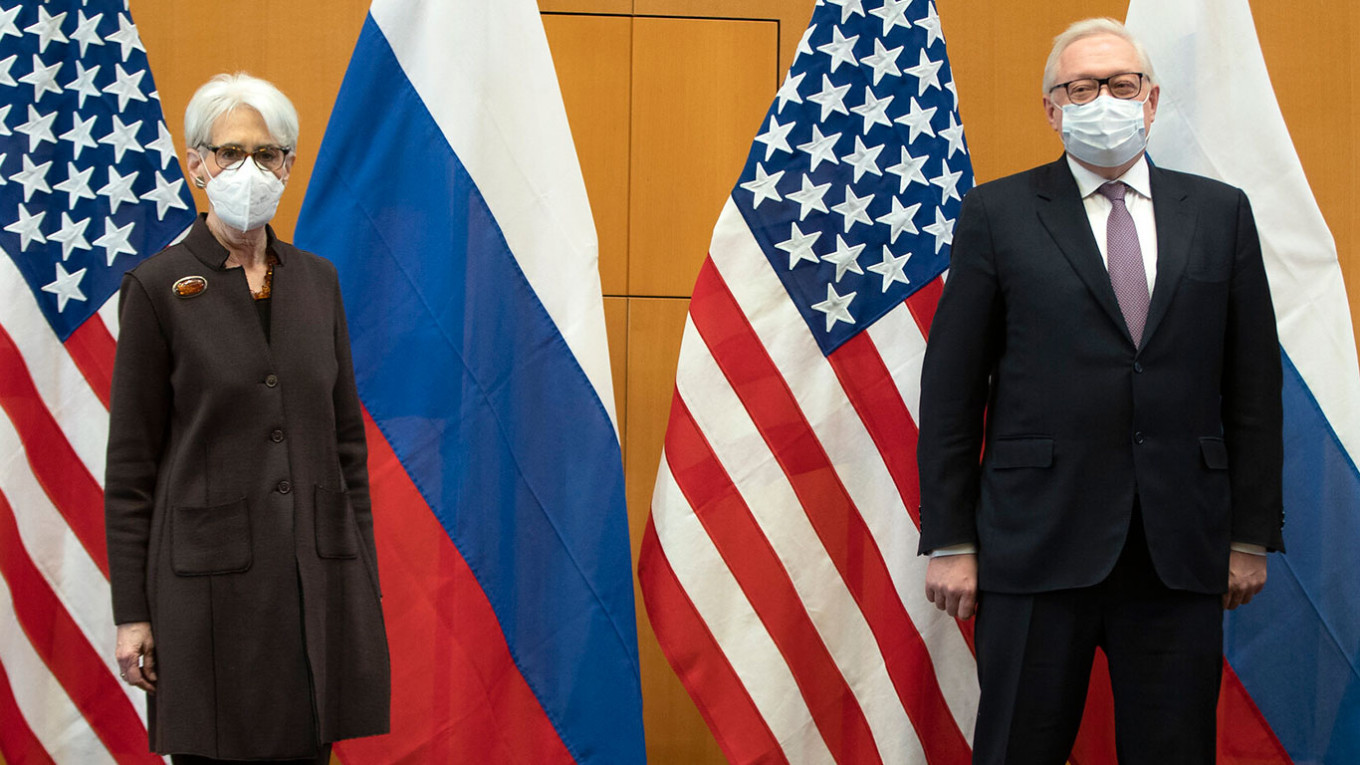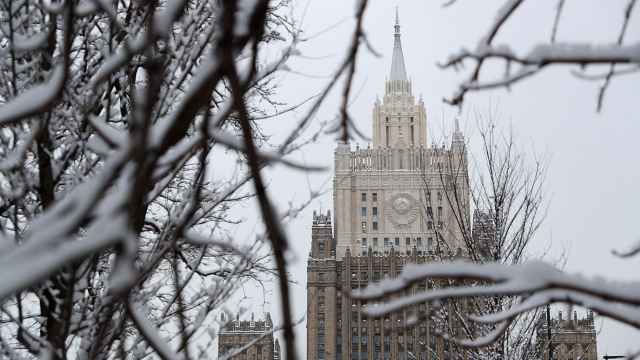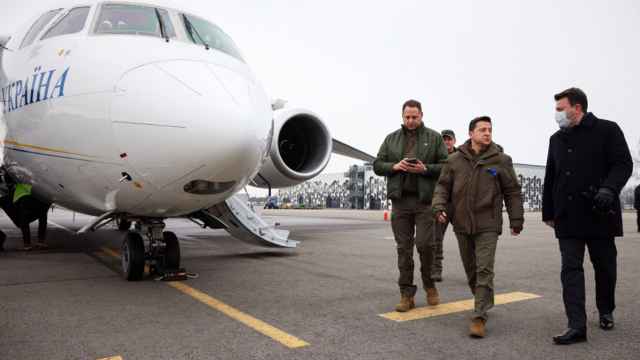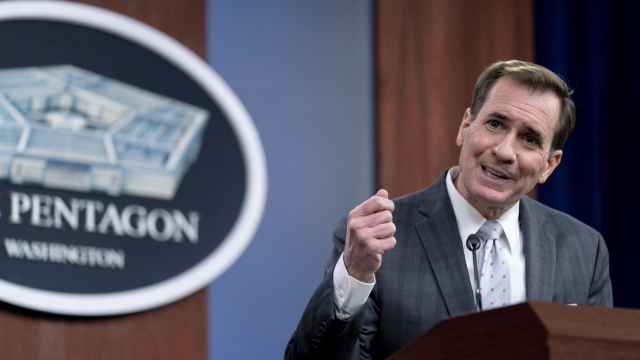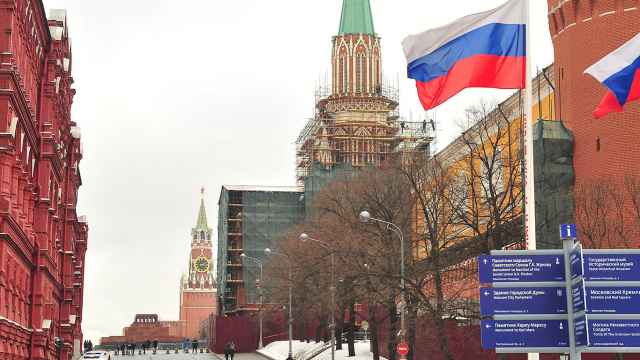No one should have expected any concrete results from Monday’s Geneva summit between Russia and the United States, any more than Wednesday’s Russia-NATO talks in Brussels or, indeed, Thursday’s multilateral talks in Vienna under the umbrella of the Organisation for Cooperation and Security in Europe (OSCE). The point is that they are talking, but are they speaking the same language?
The mood music out of Geneva was as good as could have been expected in that the door is still open; although it is still unclear if anything will come through it.
Moscow’s point man, First Deputy Foreign Minister Sergei Ryabkov, said that “the conversation was difficult, long, very professional, deep, concrete, without attempts to embellish anything, to avoid any sharp corners,” but he allowed that “the American side took the Russian proposals very seriously.” On the specific issue of Ukraine, he said “we explained to our colleagues that we have no plans, no intentions, to ‘attack’ Ukraine … There is no reason to fear any escalation in this regard.”
His U.S. counterpart, Deputy Secretary of State Wendy Sherman, likewise characterized the talks as “serious” and “business-like,” but added “it is on Russia to de-escalate tensions,” which is at once true and yet also at the root of the problem.
In part, this is about a fundamental disconnect between how Russia and the West see the situation. Washington wants to make this an issue of broader “strategic stability,” a route back into discussions about arms control and nuclear policy.
Moscow is not specifically against this, but believes that talking about strategic stability in the present situation is like getting involved in comparison-shopping for burglar alarms when an intruder is already prising open the windows to your bedroom. It is an important but secondary and longer-term issue, to be resolved later, compared with an immediate threat from NATO.
The West does not seem to be able to accept that — however nonsensical it may seem — the old men in the Kremlin truly do believe that NATO poses a threat, not necessarily in conventional military terms, but as a hostile alliance committed to constraining and even undermining Russia.
The emotional disconnect
This, after all, speaks to the arguably even more important point of the equally fundamental contrast between how the two sides feel about the situation and the talks.
To Washington, these are pragmatic crisis talks to defuse a dangerous situation generated by the Kremlin’s unrealistic fears and ambitions. From some conversations I have had with people involved, the impression is of a police officer trying to negotiate a hostage situation. There is an innocent victim who has to be protected — Ukraine — there is a wild-eyed criminal with a knife at the victim’s throat — Russia — and there is the American cop, hoping to calm the miscreant, but with the threat of the SWAT team’s snipers at his back if things escalate. There may be some sad or traumatic backstory that made the knife-wielder what he is today, but that is not really the cop’s concern.
For Moscow, I feel these are more like divorce negotiations at the end of a long, increasingly bitter marriage. On one level, the Kremlin may know that it is acting out, but it feels it has no alternative way of getting through to its smug, dishonest ex-partner, who cheated and lied, yet still believes it has a legitimate claim to both the kids and the beach house, as well as to feel morally superior for whatever pittance they leave in the settlement.
In this context, the problem is precisely that negotiations over practical issues become intertwined with the psycho-drama of years of growing animosity. The breach of promises made to Gorbachev that NATO would move not an inch eastwards, Kosovo, Libya, the way the European Union Accession Agreement would practically, if not technically, preclude Ukraine’s membership of the Eurasian Economic Union — all these are not simply past bones of contention. For the Kremlin leadership they demonstrate a pattern of wilful deception that explains its impractical demands for “iron-clad” legal guarantees, not just verbal commitments.
Western attempts to argue these cases, to challenge Moscow’s understandings of them or to consider them historical incidents of no current bearing, are thus regarded as gaslighting, equivalent to the unfaithful ex-spouse waving away past affairs as “ancient history” and seeking to limit any negotiations to the issues that suit them.
Tellingly, for example, Ryabkov complained that the U.S. wanted to restore the work of the Russia-NATO Council, suspended since 2019, but “on their own terms, to an agenda that suits them, with an emphasis on so-called “Russian aggression” in Ukraine. To him, the attempt to define the parameters of any discussion was in itself an aggression.
On one level, these may seem trivial analogies to draw, but the hope is that they convey the gulf between not just what each side is saying, but how they feel about the dispute.
Room for hope?
That is not to say there is no room for hope. The U.S. side seems to have avoided the temptation to respond to a recitation of Russian complaints in kind, but made an effort to talk them through. It also did not make any continuation of the discussions tightly dependent on immediate demands about a scaling down of the forces on the Ukrainian border or the like. Instead, it seems willing to give the conversation time — which is crucial to get through the opening bluster and at the very least let the Russians feel they are being heard.
It’s less clear how far Moscow is willing to let the talks run if it doesn’t get the sense that there is any room for concrete progress on the one issue it seems to think is more important than all the rest: Ukraine, both in terms of NATO membership and also the potential for it to be used, even while not a member, as a base for Western military assets.
The kinds of proposals Sherman has been able to put on the table so far — such as the deployment of missile defence systems in Europe and limits on military exercises — do not in any way add up to anything that Putin could consider a victory.
Although we should not overstate the degree to which Putin is committed to the point that his choice is simply between “win or war,” an authoritarian regime has more scope to spin concessions as statesmanship. While the Russian people are not clamouring for conflict, he must see this as a crucial moment in his consistent efforts to redefine a European security order he feels is unfairly tilted against Russia.
Ryabkov has made it clear that Russia wants NATO openly to repudiate its membership pledge to Ukraine and Georgia at its next summit, in Madrid. As that is not until June, it means there may be time yet for talk.
Admittedly, at present, it is hard to see how any amount of discussion could bridge the gap between Russia and the West. The virtue of dialogue, though, is that new ideas and shared understandings can sometimes come from the back-and-forth.
And with a reported 100,000-plus Russian troops on or near the Ukrainian border, and a system that has spent seven years doing everything it can to sanctions-proof itself to the point where it may credibly believe it can shrug off the “unprecedented sanctions” the West has threatened, dialogue is also better than the alternative.
A Message from The Moscow Times:
Dear readers,
We are facing unprecedented challenges. Russia's Prosecutor General's Office has designated The Moscow Times as an "undesirable" organization, criminalizing our work and putting our staff at risk of prosecution. This follows our earlier unjust labeling as a "foreign agent."
These actions are direct attempts to silence independent journalism in Russia. The authorities claim our work "discredits the decisions of the Russian leadership." We see things differently: we strive to provide accurate, unbiased reporting on Russia.
We, the journalists of The Moscow Times, refuse to be silenced. But to continue our work, we need your help.
Your support, no matter how small, makes a world of difference. If you can, please support us monthly starting from just $2. It's quick to set up, and every contribution makes a significant impact.
By supporting The Moscow Times, you're defending open, independent journalism in the face of repression. Thank you for standing with us.
Remind me later.



